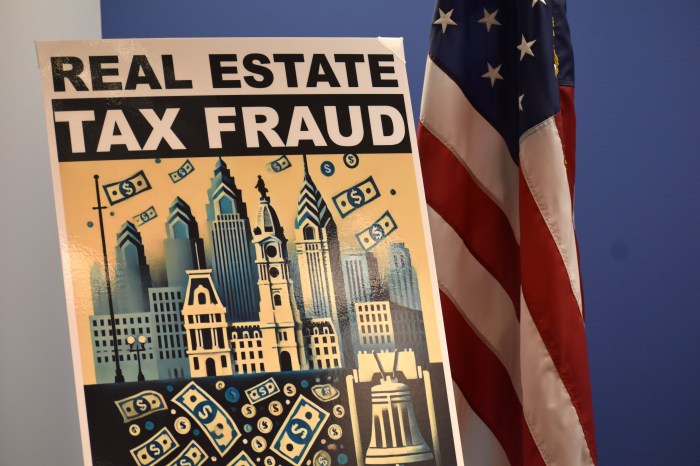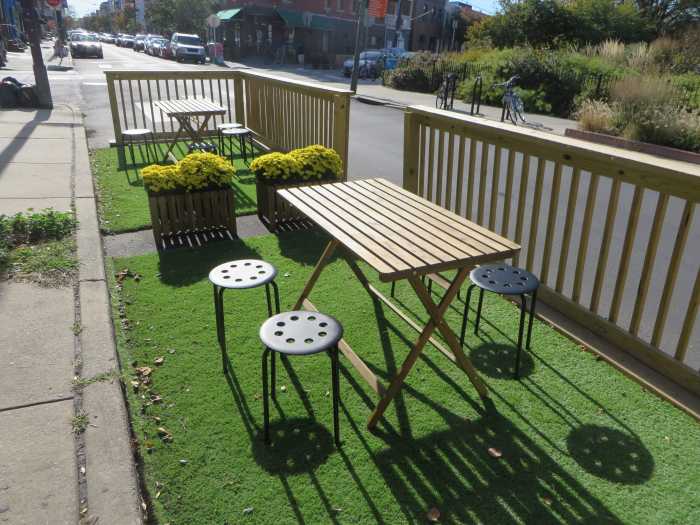Fraud within the Homestead Exemption Program – Philadelphia’s popular real estate tax relief benefit – costs the city’s government and schools more than $11 million a year, the City Controller’s Office estimated in a report published Wednesday.
Investigators from the controller’s office used data-mining tools and municipal records to identify 23,000 properties that are likely improperly enrolled in the program, which is reserved for owner-occupied homes.
“Our school district and city cannot afford to lose millions of dollars that are essential for funding vital services,” Controller Christy Brady said at a news conference Wednesday. “That is why it is crucial the city prevents ineligible property owners from claiming a Homestead Exemption.”
A spokesperson from Mayor Cherelle Parker’s administration said Thursday that the city has reviewed the findings but needs to analyze the controller’s methodology before commenting on the figures.
Only homeowners who live in their property as a primary residence are supposed to receive the Homestead Exemption. No one is supposed to benefit from multiple exemptions.
However, the controller’s report found that property owners with mailing addresses outside of Philadelphia, and even as far away as California, are receiving the deduction. Businesses and landlords are getting it, and in other cases, the same person is successfully applying for multiple exemptions.
Just over half – 56% – of real estate tax revenues flow to the School District of Philadelphia, meaning the education system is losing out on just under $6.4 million annually, according to the controller’s calculations. The estimated $11.4 million yearly fraud costs the municipal government about $5 million.
Brady’s office analyzed a sample of alleged fraudulent claims, and a zip code map of those addresses shows a higher concentration in the Lower Northeast and South Philadelphia.

“Although the controller suggests we make the initial Homestead Exemption application more robust, we have made the conscientious decision to make the application as easy as possible,” the city spokesperson told Metro in a statement. “An application that is quickly and easily completed without complicated language or requirements promotes equity for homeowners in obtaining a rightful tax benefit.”
Residents can apply for the Homestead Exemption through a relatively simple, one-page form. Elected officials have encouraged homeowners to sign up, and Brady does not believe the process needs to be made more complicated. But she suggested additional vetting on the city’s end.
Her team recommended enhancing the city’s verification process and cross-checking names and addresses to prevent individuals from claiming more than one exemption. Reviews should also be conducted, the report states, for out-of-city Homestead beneficiaries.
Standardized name formats could be required on municipal property records to reduce the number of people receiving the benefit multiple times with slightly different names, the controller’s office said.
The report also asked the city to consider implementing penalties to recover a portion of the lost revenue. She said she is not aware of any attempt to go after properties with illegitimate Homestead Exemptions.
The Parker administration spokesperson said the Department of Revenue took a “compassionate enforcement” approach in the wake of the coronavirus pandemic. Enforcement efforts have been ramping up, with the creation of a dedicated tax benefit fraud unit earlier this year and additional data tools expected to be rolled out in the near future, according to the city.
Officials in within the revenue department also check deed records before granting an exemption, the administration added.
Brady said the findings and recommendations were turned over to the city’s revenue department and Office of Property Assessment.

The Homestead Exemption was introduced in 2013 and has been gradually increased to offset rising property valuations. It effectively reduces the taxable value of residences.
Ahead of the most recent real estate reassessment, Parker and City Council agreed to increase the benefit to $100,000, up from $80,000. The maximum yearly deduction is around $1,400, and tens of thousands of properties in Philadelphia valued under $100,000 do not need to pay any property tax if enrolled in the program.
More than 233,000 properties, equating to 40% of those eligible, currently receive the Homestead Exemption, according to Brady.
Her office opened a probe into potential fraud affecting the program after being approached by Northeast Philadelphia resident Robert Faulds.
“He’s been conducting his own research over the years and provided our team with a starting point to expand our work across multiple databases and across the city,” Brady added.



























